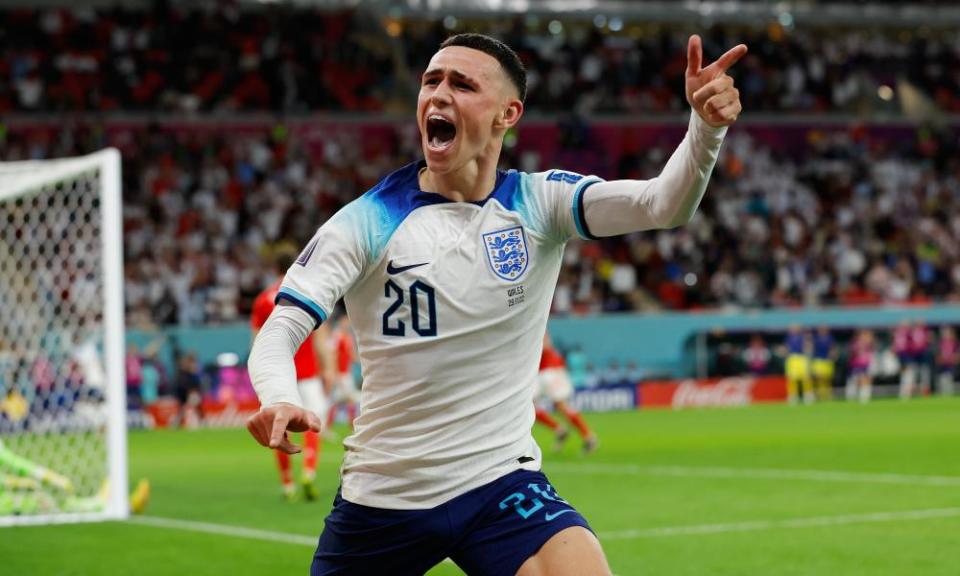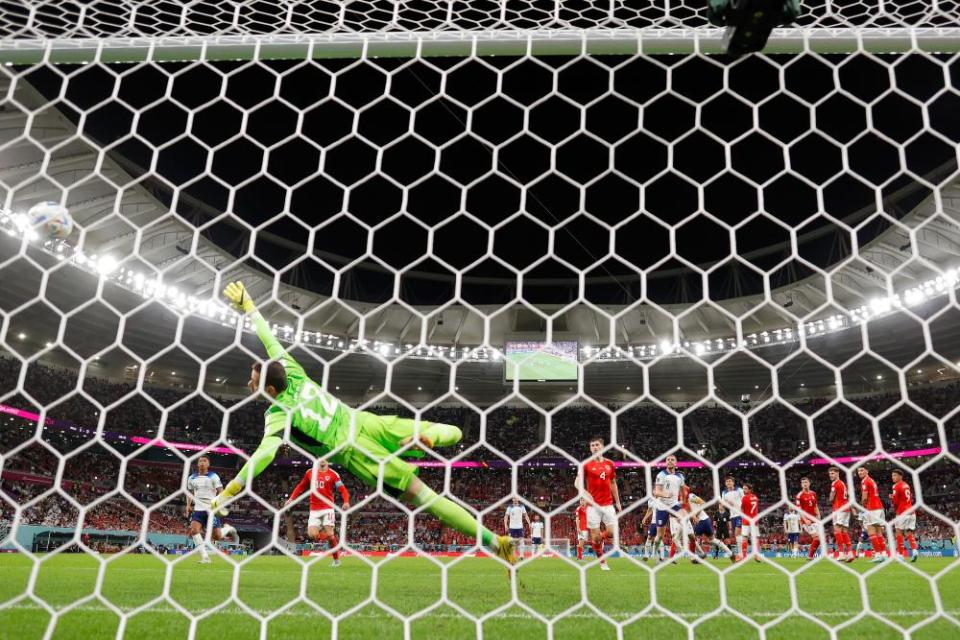Gareth Southgate has a dilemma: try dropping Foden or Rashford now

You have to hand it to England, really. Few other nations can score nine goals and qualify top of their group and still provoke a debate about whether they are fit for purpose. In a way, there is a kind of genius to the perpetual dissatisfaction of the English: not so much a tyranny of expectations as a police state of expectations, a fascism of expectations.
But just for argument’s sake, let’s start with the caveats. After all, how much did we actually learn here? For all their vivid noise, Wales have essentially been gristle at this tournament: the ghosts at the edge of the photograph. There was a certain sadness in seeing the great Gareth Bale shuffled away at half‑time in what will almost certainly be his last World Cup, having tiptoed through this game the way he has tiptoed through most of this tournament, like a man going to the bathroom at 4am.
Likewise, to say Declan Rice and Jordan Henderson won the battle in the centre is to damn them with faint praise. A set of dining chairs could have won the midfield battle against Wales. England could simply work the ball around them, safe in the knowledge that Joe Allen and Aaron Ramsey would back off at the first sign of trouble. Good luck trying that against Nampalys Mendy and Pape Gueye in the last 16.
This is a World Cup like no other. For the last 12 years the Guardian has been reporting on the issues surrounding Qatar 2022, from corruption and human rights abuses to the treatment of migrant workers and discriminatory laws. The best of our journalism is gathered on our dedicated Qatar: Beyond the Football home page for those who want to go deeper into the issues beyond the pitch.
Guardian reporting goes far beyond what happens on the pitch. Support our investigative journalism today.
And yet in this languid slow burn of a performance there were still certain conclusions that could be drawn with clarity. Jude Bellingham is the real thing. The defence still looks pretty confident. Indeed it was Harry Maguire who provided perhaps the warmest moment of a tepid first half: storming out of defence like a guy who’s just heard the first few notes of Hips Don’t Lie on the dancefloor, and shanking a fierce left-foot shot into the desert.
That first half was, let’s be honest, pretty thin. It wasn’t simply slow and laboured, although it was obviously also both those things. At times it was almost comically inept: players making the same run, players running into each other. Everything England tried seemed to congeal in a little fetid no‑man’s land about 45 yards from goal, from where the only options were to play it backwards or try a hopeless dinky cross. Perhaps this was Southgate’s personal homage to Alf Ramsey’s wingless wonders of 1966, only this time with wingers simply running into each other.
The problem here was that everyone seemed to want to play in the same space. Rashford on the left wanted to cut inside on to his stronger foot. Foden on the right wanted to cut inside on to his stronger foot. Henderson likes to drift into the channels. Bellingham also likes to drift into the channels. Harry Kane likes to drop deep to receive. The effect was a kind of footballing Hanger Lane gyratory: a cortege of extremely talented footballers essentially converging on the same spot and rotating very slowly around each other.
Typical Gareth. Boring Gareth. Stubborn Gareth. As the teams disappeared down the tunnel at half-time you could almost feel the heat from the steam of a million middle-aged Englishmen collectively boiling their piss. A bright start had disintegrated into a staid passing circle, which as everyone knows is the wokest of all the shapes. But One Trick Gareth had a second trick up his sleeve. And it didn’t even involve a substitution.

So it was a few minutes into the second half that Foden, now restored to his favoured left flank, slalomed past three Wales players, winning a free-kick that Rashford slotted beautifully into the top corner. Less than two minutes later Rashford, now given the freedom of the right wing, won the ball from Ben Davies, allowing Kane to play Foden in for his first tournament goal.
All of a sudden England were attacking from new angles, different angles, stretching the pitch and so stretching Wales. It’s not a tactic that will work against every opponent in every situation. But in a way, this is the point.
For Southgate now has a quiet dilemma on his hands. Bukayo Saka has had a good tournament; Raheem Sterling is his talisman; Mason Mount his rock. But you try dropping Foden and Rashford after a second half like that. And so whither Bellingham in that clever, chaotic No 10 role? Against stronger opposition England will almost certainly revert to a back three, the wing-backs pushing up, the wide forwards inverted. But Southgate’s timely switch has shown that there are other plans to hand, other ways of winning.
And if England are going to go deep in this tournament, this is probably how they are going to have to do it. They have not enjoyed the luxury of extensive preparation time. They do not have a generational talent such as Kylian Mbappé or Lionel Messi. And so you simply have to keep switching the masks as you go, leave opponents guessing, move the points of attack. A cynic might offer that three games into the tournament Southgate still has no idea of his best team. An optimist might counter that on the contrary, he has several.

 Yahoo Movies
Yahoo Movies 